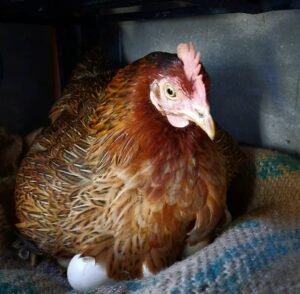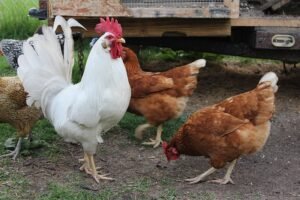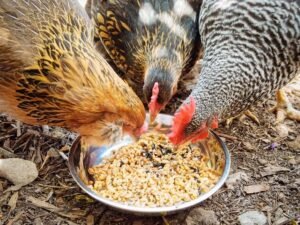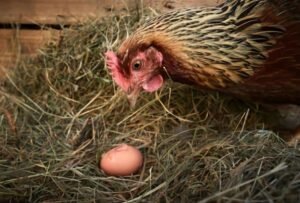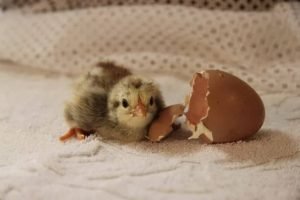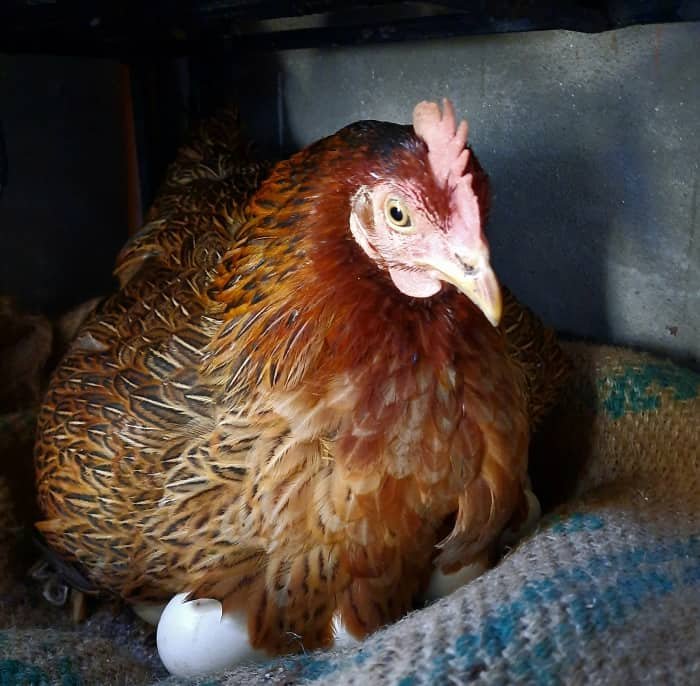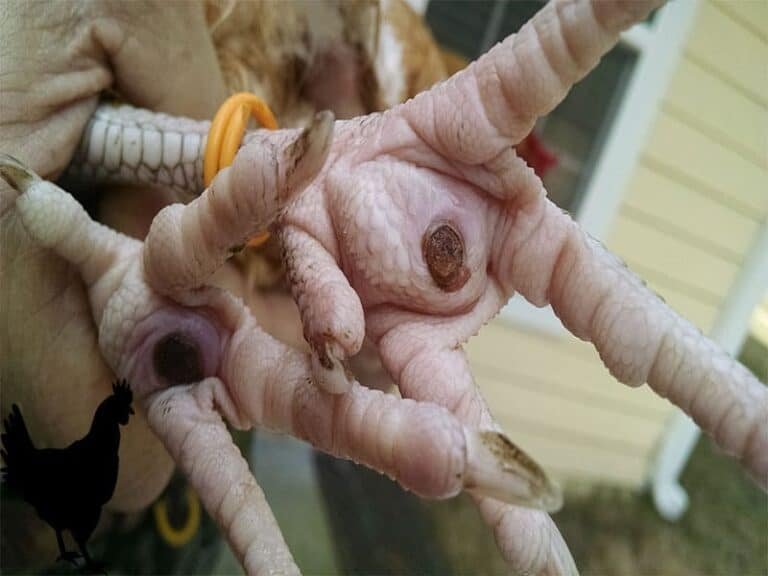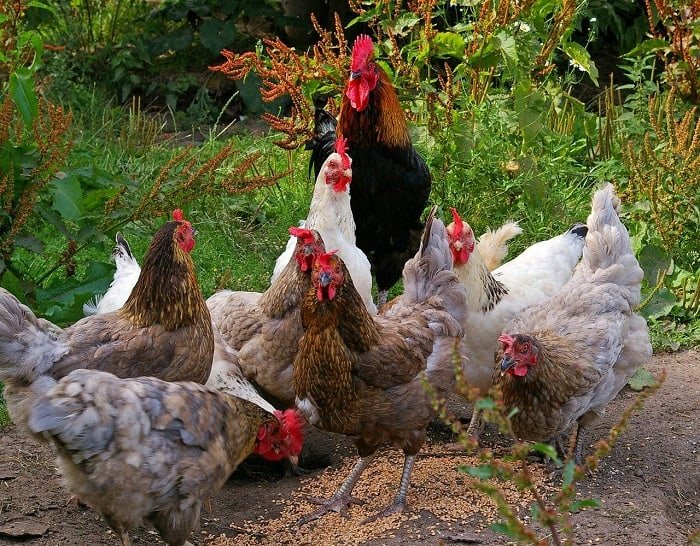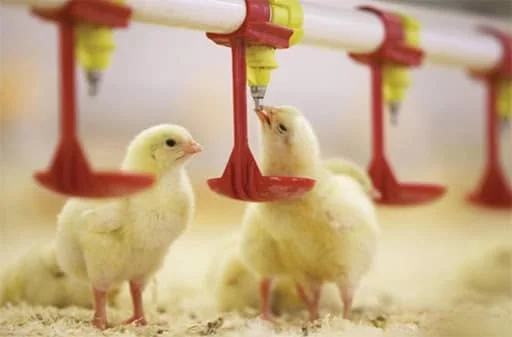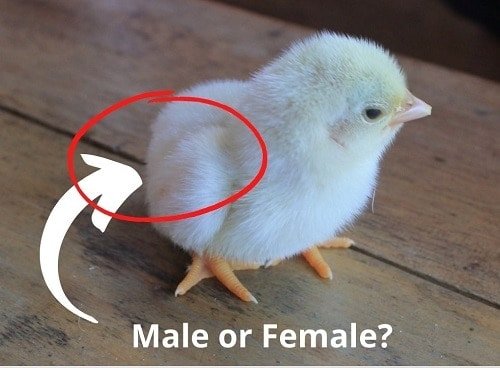Best Vaccination For Chickens: All You Need To Know
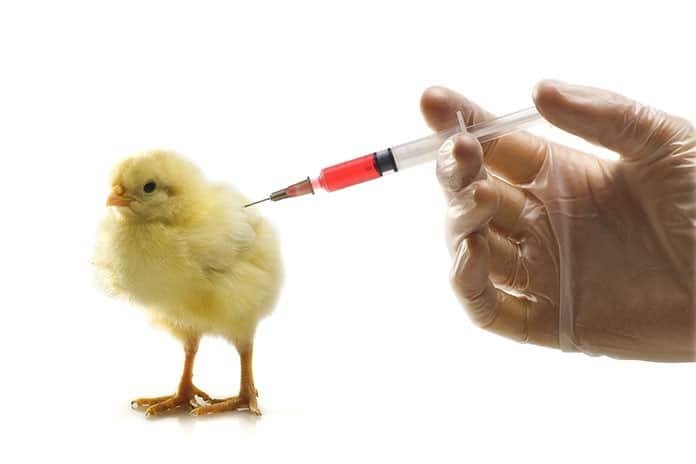
Have you been looking for that perfect guide to follow that will show you the correct vaccination for chickens and the proper schedule to follow?
If yes, then consider yourself lucky.
This article contains all you need to know about the vaccination schedule for your broiler and layer chickens.
You will learn about vaccines and the different types of vaccines for broiler chickens and layer chickens. Also, you will learn about the correct vaccination schedule to follow and why vaccines are important for your chickens.
So, grab a cup of coffee as we get into the details.
What is vaccination?
Vaccination is the introduction of antigenic substances or vaccines into the body to produce immunity to a specific disease.
In other words, you give vaccines to poultry birds to protect them from certain types of chicken diseases.

Most Important Vaccination For Chickens
You can create a vaccination program for any flock based on two simple things.
The first is based on the specific needs of the poultry farm. Secondly, it may be based on a disease that is prevalent in the region where your farm is located.
The type of poultry diseases common in a region with a farm history tells the perfect vaccination schedule that you need to follow.
Though these vaccines are not a complete treatment for the diseases, they improve the resistance of birds to diseases.
The most common vaccines for broilers and layer chickens include;
1. Marek’s Disease (MD):
Marek disease is a very common disease that is caused by a highly contagious herpes virus. This disease is also known as fowl paralysis.
This disease is airborne and chicks infected by it carry this virus for life. Thus, It spreads rapidly within the coop and causes cancer, tumors, and paralysis of the birds.
Young birds are the most susceptible to Marek’s disease infection. Hence, you must administer the Marek’s disease vaccine to the young chicks on the day they hatch in the hatchery.
To administer this vaccine, you need to inject the chicks on the back of the neck right under the skin. Most hatcheries already administer this vaccine before shipping the chickens.
The best control for Marek’s disease is the maintenance of good hygiene, biosecurity, and vaccination.
2. Newcastle disease:
Newcastle disease is an infection well-known among domestic poultry.
The Newcastle disease virus (NDV) only affects birds and can lead to illness and death in large numbers in a flock very quickly.
This virus causes acute respiratory disease with other symptoms like gasping, coughing, loss of appetite, and bright green diarrhea.
Also, nervous signs include paralysis and convulsions, sometimes twisted necks.
The severity of infection depends on the exact form of the virus, chicken age, and susceptibility of the host.
Unfortunately, infected birds can spread this malignant disease simply through respiratory discharges, breathing, and feces. As a result, it is easy to contact even by moving contaminated equipment, litter, and birds between different flocks.
Chicks at the hatchery can be given vaccination for Newcastle disease virus (NVD) straight off before being moved to the farm. It is administered periodically to ensure its effectiveness.
The NVD vaccine which has the same purpose as the LaSota strain is a good recommendation for healthy layers and broilers.
It should be administered by aerosol spray or by drinking water when they are around 9-14 days old.
Revaccination must also be carried out at 4 weeks and 16 weeks of age.
3. Infectious bronchitis:
This is a highly contagious respiratory disease in poultry farming caused by an avian coronavirus.
Infectious bronchitis virus (IBV) has other symptoms too like nephritis, reduced egg quality, poor performance, and soon.
There are two types of vaccination for this virus which are the weakened and far less virulent vaccine also called an attenuated live vaccine.
And then, the inactive vaccine is made from inactive infectious bronchitis virus.
In general, vaccination for infectious bronchitis can be given at two weeks intervals between live vaccines and 4-6 weeks intervals for inactive vaccines.
Vaccination programs are very specific to species, breeds, and varieties.
Chickens need this vaccine at an early age to keep them safe and healthy throughout their growing stage.
Layers also require the vaccine to protect them from changes in the internal and external quality of the egg and any drop in production.
This is because infectious bronchitis attacks the oviducts of layers making them lay false eggs and reducing their productivity.
IBV and NDV vaccines are usually combined in a single vaccine. Hence infectious bronchitis can be given to Chicks at the hatchery or within 9-14 days in their drinking water.
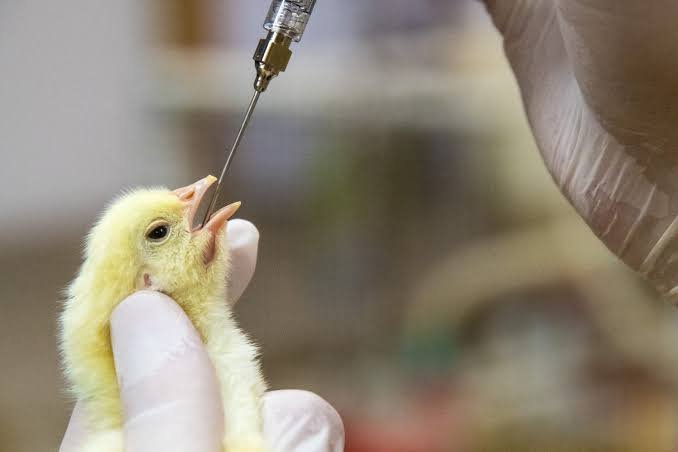
4. Infectious bursal disease:
This disease is also known as gumboro disease, infectious bursitis, and infectious avian nephrosis.
It is a highly contagious viral disease that causes severe mortality in young chickens.
Infectious bursal disease viruses (IBDV) are very hardy species that survive a wide range of environments.
Hence, they prove difficult to decontaminate on the farm once they spread.
Affected chickens show some symptoms like watery diarrhea, weight loss, depression, and dehydration.
Transmission of the virus is by ingestion through the oral or fecal route into the body.
Unfortunately, the disease has no treatment but IBD vaccines help birds produce immunity against the virus.
5. Vaccine against Fowlpox disease:
This is a common type of disease that causes a drop in egg production in layers and increased mortality for broiler chickens.
It is caused by a virus and it affects all poultry birds it comes in two forms which are;
The dry form and the diphtheric form attack the upper respiratory tract.
The general symptoms of this include blindness, loss of appetite, facial swelling, reduced egg production, and a high death rate.
Fowl pox is transmitted by vectors like mosquitoes, mites, and lice from one bird to another on the poultry farm.
You can prevent this disease by maintaining hygiene on the farm and administering the right vaccine via the wing web of the chickens.
Healthy chickens should be given the vaccine at their 8th week of age and above before they start laying.
6. Avian Encephalomyelitis (AE):
This disease is caused by a virus and it is characterized by neurologic signs.
Infected chickens can spread this disease in the flock and it can also affect their eggs.
Symptoms include tremors, imbalanced coordination, paralysis, a drop in egg production, and an increased mortality rate.
Vaccination must be administered to broilers at 8 weeks or older and for layer chickens, at least 4 weeks before they start laying.
The Vaccines usually come combined with the fowlpox vaccine so that they can both be applied at once.
When should chickens be vaccinated?
Knowing when to administer vaccines to chickens will help to prevent diseases from attacking the flow. The table below is a good vaccination schedule for chickens that shows when chickens should be vaccinated.
The schedule has been divided into two for broilers and layer chickens.
1. Vaccination schedule for broiler chickens:
| Age | Medication of vaccination | Method of administration |
| Day 0 At the hatchery | Marek’s disease (MD) vaccines | I/M (intramuscular) injected on the back of the neck. |
| Day 1 | I/O vaccines+Vitamins+Glucose | Drinking water (DW) |
| Day 1 | Infectious bronchitis vaccines | Beak dip. |
| Day 3 | Antibiotics+Vitamins. | Drinking water |
| Day 7 | Coccidiostat (acts on protozoan parasites in birds) | Drinking water |
| Day 9 | 1st infectious bursal disease (IBD) vaccine. | Intraocular (I/O) as eye drop Drinking water. |
| Day 12 | Newcastle disease (ND) vaccines | Drinking water. |
| Day 14 | Coccidiostat | Drinking water |
| Day 16 | 2nd IBD vaccine | Oral, Drinking water |
| Day 18 | Fowlpox | Wing web stab |
| Day 28 | Dewormer | Drinking water |
Vaccination schedule for layers
Just below you have the vaccination schedule for the layers Which is a bit more comprehensive.
| Age | Medication of vaccination | Method of administration |
| At the hatchery | Marek’s disease vaccine | On the neck |
| Day 1 | Vitamins, glucose | Drinking water |
| Day 4 | Antibiotics and vitamins | Dw |
| Day 7 | Coccidiostat | Dw |
| Day 9 | Newcastle disease | Dw |
| Day 12 | 1st infectious bronchitis disease vaccine. | Eye drop/Drinking water |
| Day 14 | Infectious bursal vaccine (Gumboro) | Drinking water |
| Day 16 | Coccidiostat | Dw |
| Day 17 | Fowlpox vaccine | Wing web |
| Day 26 | Vitamins | Drinking water/feed |
| Day 28 | 2nd Gumboro/ IBDV vaccine | Dw |
| Day 30 | Deworming | Dw/feed |
| Week 4 | 2nd Newcastle disease (NDV) vaccine. | Drinking water, I/O |
| Week 4 | 2nd infectious bronchitis vaccine. | Dw |
| Week 8 | Avian Encephalomyelitis (AE) vaccine | Wing web stab |
| Week 9 | 1st Infectious coryza vaccine | Intramuscular |
| Week 10 | 3rd Newcastle disease vaccine. (Komarov strain) | Intramuscular |
| Week 12 | Fowlpox vaccine | Wing web |
| Week 12 | 2nd infectious coryza | Intramuscular |
| Week 12 | 3rd infectious bronchitis vaccine | Drinking water |
| Week 16 | Laryngotracheitis vaccine | I/O eye drop/spray |
| Week 17 | The 3-in-one vaccine for egg drop syndrome, IB, and ND. | Intramuscular |
Note the following.
- Always make sure you get your chicks from a good and reliable hatchery.
- Be sure to ask the type(s) of a vaccine that has been given to newly acquired chicks so that you’ll know which other vaccines to use.
- Know the disease history in your locality to make a good schedule plan for your farm.
- Usually, Marek’s Disease vaccines are given at the hatchery but farmers do repeat the drug just to be sure and prevent the outbreak.
- Ensure you provide your birds with multivitamins before vaccinating them anytime.
- Aside from vaccines, antibiotics, and coccidiostat also need to be given regularly to chickens to maintain good health and immune system.
How often should chickens be vaccinated?
Just as expressed in the schedules above, revaccinating your birds at the appropriate time is important.
That’s to ensure good protection for the Immune system of your chickens against the virus.
That is, vaccines work wonders but it’s the correct usage that shows off its beauty.
Can vaccinated broilers and layer chickens still catch a disease?
If wrongly used or mishandled vaccines could be the cause of a breakout on the farm.
Also, there are cases when the disease still shows up due to incomplete vaccination.
Therefore, always be sure to follow a good schedule and keep your farm hygiene and biosecurity well maintained.
Conclusion
Vaccination is an important aspect of poultry farming that helps to strengthen the immune system of your chickens.
With a good vaccination schedule for your broiler and layer chickens, your chickens will be safe from infectious diseases.
In this article, we have put together a week-by-week vaccination schedule for chickens from day 0 at the hatchery up to 17 weeks of age.
If you follow this schedule correctly, you can prevent infectious diseases that may lead to high chicken mortality on your farm.
Frequently Asked Questions about broiler and layer chicken vaccination schedule
Do chickens need vaccines?
Vaccination is strongly recommended for all chickens. The reason is that it helps to improve the chicken’s immune system to fight against infectious diseases.
When should I vaccinate my broiler and layer chickens?
Both broiler and layer chickens need vaccination beginning from day zero immediately after hatching. After that, there are several other vaccines that you need to administer and we have put together a vaccination schedule in this article from day 0 to 17 weeks.
What is the first vaccine for chickens?
The first vaccine for chickens is the Marek’s disease (MD) vaccine. This is the first vaccine that the chickens receive at the hatchery after hatching.
When do you give the Gumboro vaccine?
For broilers, administer the Gumboro vaccine 9 days after hatching. For layer chickens, that administer the Gumboro vaccine on day 12. The vaccine should be given in the early morning as well as during the cooler period of the day.
References
- 12 Best Chicken breeds for Eggs – chicken breeds for eggs
- When Do Chickens Start Laying Eggs Regularly?
- How Many Eggs Does A Chicken Lay In A Week?
- Fermenting chicken feed – The definitive guide
- 10 Sure Ways To Stop Chickens from Eating Their Eggs [+Bonus]
- 6 Best Chicken Egg Incubators for Chicken Eggs and Other Birds
